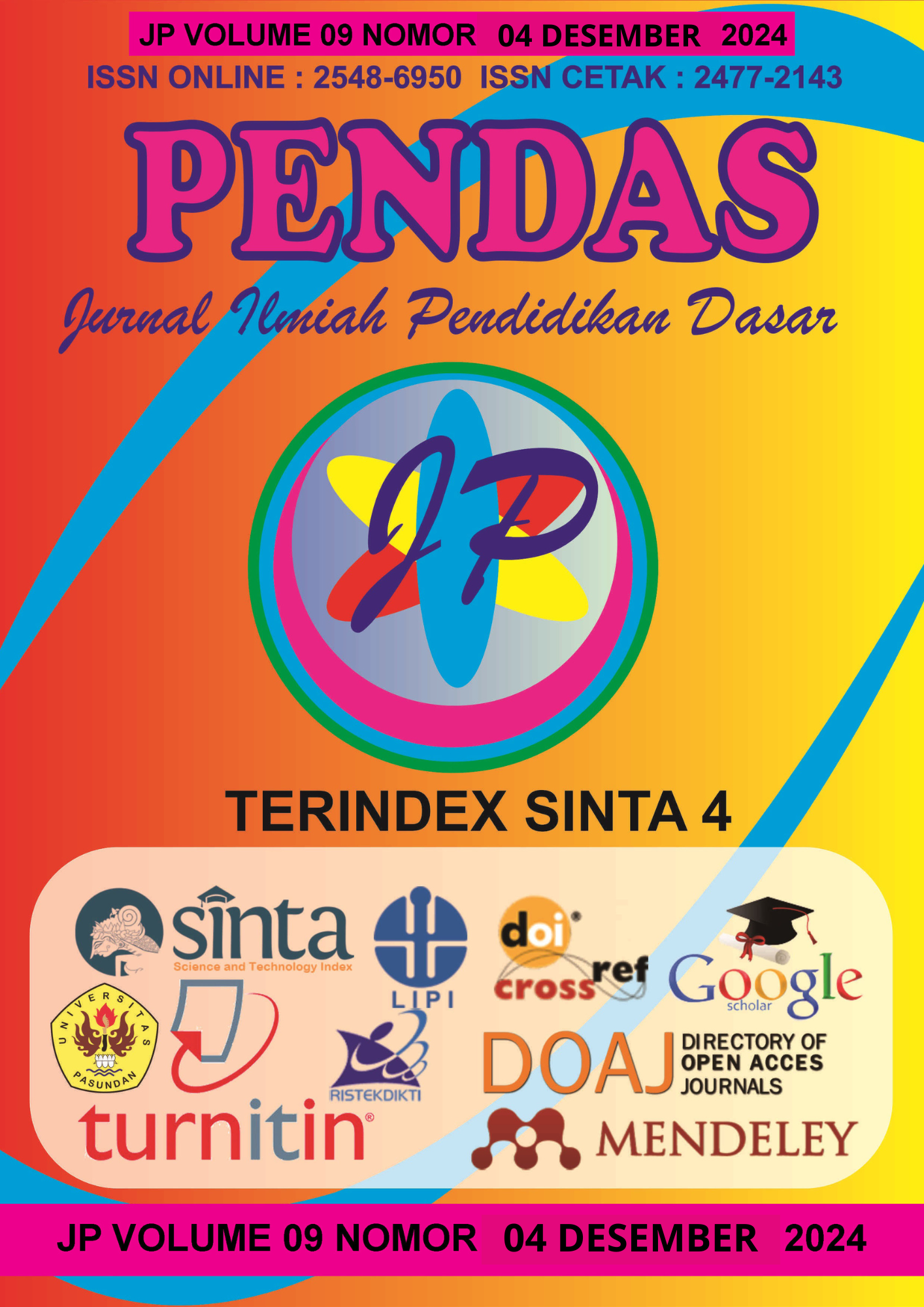PENGGUNAAN PRODUK PEMBELAJARAN MIND MAPPING BERBASIS APLIKASI CANVA DALAM PEMBELAJARAN SEJARAH DI SMA NEGERI 1 PENGARON
DOI:
https://doi.org/10.23969/jp.v9i04.21329Keywords:
Mind Mapping, History Learning, SMA Negeri 1 PengaronAbstract
The use of mind mapping method based on canva application in learning history at SMA Negeri 1 Pengaron. This study aims to assess the effectiveness of mind mapping method based on canva application in improving students ' understanding of historical material in SMA Negeri 1 Pengaron. Mind mapping is a visual learning technique that presents information in an interesting and structured way, facilitating students in understanding the material in depth. This study uses a qualitative descriptive approach, with data collected through observation, interviews, and document analysis. Data validity is guaranteed through triangulation of sources and techniques, while data analysis is done through reduction, presentation, and inference. The results showed that the use of mind mapping learning products based on canva applications requires careful planning, selection of relevant materials, and structured implementation. This process involves assisting students in creating digital mind maps that systematically structure historical information. The findings showed significant improvements in comprehension of historical material, students ' active involvement, critical thinking skills, and creativity. In conclusion, this method is effective in increasing students ' learning motivation and supporting the achievement of optimal learning objectives of history.
Downloads
References
Azwar, (2019). Analisis Kualitas Layanan Sistem Manajemen Apartur Responsif Terpadu Menggunakan Metode Servqual. Universitas Muhammadiyah Riau.
Fajri Z, F. D. (2021). PEMANFAATAN MEDIA PEMBELAJARAN VISUAL BERBASIS APLIKASI CANVA DALAM MENINGKATKAN MINAT DAN MOTIVASI BELAJAR ANAK USIA DINI DI PAUD AL MUHAIMIN BONDOWOSO. Equilibriuim : Jurnal Pendidikan, Vol. X. Issu 3 September-Desember.
Istiqomah, Heri Maria Zulfiati, Nurhayati, Nani Mulyanti, Anissa Ulfa Diana. (2024). IMPLEMENTASI METODE MIND MAPPING BERBASIS ANDROID DALAM PEMBELAJARAN IPS KELAS VI SDN 1 PANJER. Pendas : Jurnal Ilmiah Pendidikan Dasar, ISSN Cetak : 2477-2143 ISSN Online : 2548-6950 Volume 09 Nomor 01, Maret 2024, 708-709.
Izah Nurfitriyah , Budhi Rahayu Sri Wulan , Eni Nurhayati. (2023). PENGARUH MODEL PEMBELAJARAN PROJECT BASED LEARNING TERHADAP HASIL BELAJAR SISWA PADA MATERI ENERGI KELAS IV SEKOLAH DASAR. Pendas : Jurnal Ilmiah Pendidikan Dasar, ISSN Cetak : 2477-2143 ISSN Online : 2548-6950 Volume 08 Nomor 02, September 2024, 5947.
Mohamad Zaenal Arifin Anis, F. M. (2022). Digital History dan Kesiapan Belajar Sejarah di Era Revolusi Industri 4.0. Fajar Historia, Vol. 6 No. 1 Juni 2022, hal 29-42.
Mohamad Zaenal Arifin Anis, H. P. (2020). Kesejarahan dalam Pencapaian Dimensi Kognitif Pembelajaran Sejarah Indonesia. Palarch's Journal Of Archaeology Of Egyptology, 17 (7).
Octavia, Friska. (2017). Eksplorasi Kemampuan Psikomotorik Siswa terhadap Kemampuan Memprediksi dan Mengobservasi ditinjau dari Gender. JPF Jurnal Pendidikan Fisika. Vol. 5. No. 2: hal 114.1
Siti Handayani, Ana Fitrotun Nisa, Berliana Henu Cahyani, Banun Havifah Cahyo Khosiyono. (2024). ANALISIS KEBUTUHAN MULTIMEDIA PEMBELAJARAN INTERAKTIF BERBASIS APLIKASI CANVA PADA PEMBELAJARAN IPAS SISWA SEKOLAH DASAR. Pendas : Jurnal Ilmiah Pendidikan Dasar, ISSN Cetak : 2477-2143 ISSN Online : 2548-6950 Volume 09 Nomor 01, Maret2024, 1465.
Sugiarti. (2018). Penilaian Psikomotorik Peserta Didik Pembelajaran Fisika melalui Model Pembelajaran Guyded Inkuiri. Journal of Physic and Science Learning. Vol. 02. No. 1: hal 78.
Trubus K, Sriyanto. (2022). Canva Mind Mapping : Alternative Pembelajaran Inovatif Abad 21. UMP Press. Proceedings Series on Social Sciences & Humanities, Volume 3. Proceedings of Social Learning Challenges in the 21st Century, 392-396
Zampetakis, Leonidas A and Tsironis, Loukas. (2007). “Creativity development in engineering education: the case of mind mapping”. Journal of Management Development. Vol. 26 No. 4, pp. 370-380.
Downloads
Published
Issue
Section
License
Copyright (c) 2025 Pendas : Jurnal Ilmiah Pendidikan Dasar

This work is licensed under a Creative Commons Attribution 4.0 International License.



















